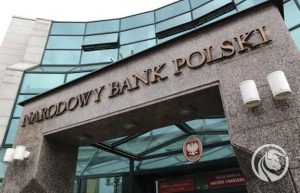Bloomberg
Poland increased borrowing costs for a fifth consecutive month to an almost nine-year high as pressure grows on the central bank to tame record inflation in eastern Europe’s largest economy.
The council that sets interest rates lifted the benchmark 50 basis points to 2.75%, in line with the median estimate of 32 economists in a Bloomberg
survey. The central bank’s governor, Adam Glapinski, will brief
reporters on the decision.
The bank will continue to act against inflation in the coming months, the Monetary Policy Council said in a statement. The body also raised the main reserve requirement to 3.5% from 2% and said a stronger zloty would be coherent with the bank’s policy.
The currency briefly reversed gains against the euro after the decision, only to strengthen 0.1% to 4.5329 per euro at 4:26 pm in Warsaw. That put its gains this month at 1.1%, the best
run in emerging markets after
Russia’s ruble.
“The council doesn’t want to surprise anyone,†said Piotr Bujak, chief economist at PKO Bank Polski. “The Council wants to run a predictable and credible communication.â€
The National Bank of Poland has come under fire for what many economists have seen as a slow reaction as inflation climbs to the highest level in more than two decades.
Polish rate setters began raising rates in October in an abrupt turnaround that surprised markets. And even after the decision, Polish negative real interest rates are still among the lowest in Europe.
Since then, Glapinski — who has been nominated by President Andrzej Duda to lead the bank for another six-year term — has called for increased tightening, shedding his previously dovish stance.
“We expect the council to maintain its hawkish rhetoric,†Rafal Benecki, chief economist at ING Bank Slaski in Warsaw, said in a note. “This will be aimed at zloty appreciation.â€
Poland’s annual GDP rises hand in hand with inflation
Inflation pressure has only mounted after reaching a 21-year record of 8.6% in December and possibly close to 10% last month. Any dent in prices may be temporary given the government’s decision to cut levies on food and gasoline for six months. On the other hand, Poland’s economy expanded a better-than-expected 5.7% last year, blunting concerns about Poland’s recovery from the
pandemic-induced recession.
 The Gulf Time Newspaper One of the finest business newspapers in the UAE brought to you by our professional writers and editors.
The Gulf Time Newspaper One of the finest business newspapers in the UAE brought to you by our professional writers and editors.
